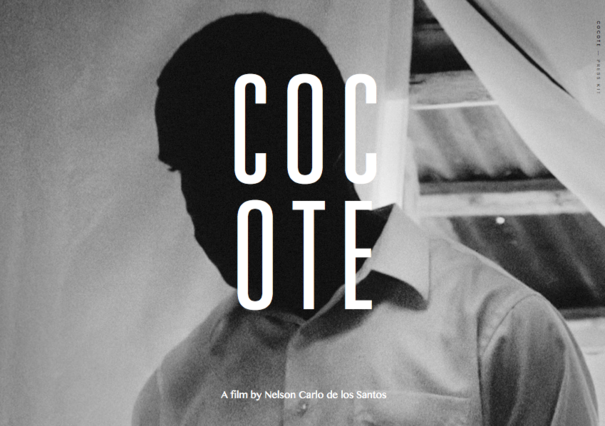Cocote, reveals an unusual discovery
by Diego de Angelis

Cocote
Catalogue text
Nelson Carlo de los Santos Arias’s film reveals an unusual discovery; perhaps the concrete manifestation of an unexpected proof: it is possible to tell a story set in a poor small village of Latin America without falling into the temptation of stereotypes, picturesque representations or sinful exhibitionism. Even though Santos Arias’s film aims to portray violence from a particular region, and even though it aims to shed light on the social and political problems — between relatives or of a spiritual nature — that make up the existence of its citizens, it does that through various formal and narrative digressions that distance it from the detached common sense of Latin-American cinema. Almost like a fantasy narrative, at times nightmarish, the film tells the story of a journey that begins with a murder. Through the use of various visual formats and a combination of remarkable fixed shots and sequence shots, Santos Arias succeeds in creating an experience for the spectator that is fundamentally cinematic.
Second Text I could define Cocote as the mise en scene of a ceremony. It is immediately evident that there is an importance in a narrative — although formal as well — that religion has in this film. The story presents two antagonistic religions in popular belief systems: evangelical catholicism and santería traditions of yoruba origin. Religion organizes the susceptibility of the characters, it projects upon all of their actions. At the same time, I could define Santos Aria’s film as the story of a man that must make a decision concerning his family. The protagonist returns to his hometown to attend his father’s funeral who has been killed by a powerful man. His family constantly demands him to avenge his death. The film displays the path of that conflict, and the ceremony that implies the taking of decisions: his thoughts, his doubts, the vicissitudes of a resolution that can even go against his own beliefs — contrary to his family, he is an evangelist. Santos Aria’s film will precisely reunite these two possible definitions. It is exceptional for that reason: it reveals a family conflict under the permanent shadow of a religious dispute.

